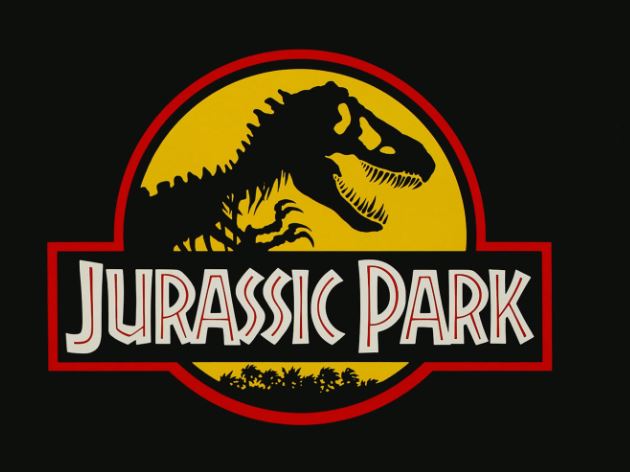Jurassic Park trilogy Summary
Jurassic Park:
Jurassic Park, directed by Steven Spielberg, takes place on Isla Nublar, a fictional island where a wealthy businessman named John Hammond has created a theme park filled with genetically cloned dinosaurs. Hammond invites a group of experts, including paleontologists Dr. Alan Grant and Dr. Ellie Sattler, mathematician Dr. Ian Malcolm, and his own grandchildren, to visit the park before its grand opening. However, a saboteur within the park’s staff causes the security systems to fail, allowing the dinosaurs to escape their enclosures and wreak havoc on the island. The group must find a way to survive and escape the dangerous creatures.
The Lost World: Jurassic Park:
In The Lost World: Jurassic Park, also directed by Spielberg, a second island called Isla Sorna is discovered, where the dinosaurs from Jurassic Park were initially bred and raised. John Hammond sends a team, including Dr. Ian Malcolm, documentarian Nick Van Owen, and his own nephew, to the island to document the dinosaurs and create public awareness about the ethical issues surrounding genetic engineering. However, a team of mercenaries arrives on the island to capture the dinosaurs and bring them back to the mainland for Hammond’s new theme park. Chaos ensues as the dinosaurs run amok, and the team must find a way to escape the island.
Jurassic Park III:
Jurassic Park III, directed by Joe Johnston, revolves around Dr. Alan Grant, who is convinced by a wealthy couple, Paul and Amanda Kirby, to join them on an aerial tour of Isla Sorna in search of their missing son. Grant reluctantly agrees, but soon realizes that the Kirbys have lied to him about their true intentions. They are actually on a mission to find their son, who went missing on the island while paragliding. As the group explores the island, they encounter various dinosaurs and must navigate dangerous situations to survive and find a way to escape.
Overall, the Jurassic Park trilogy follows a common theme of humans interacting with genetically recreated dinosaurs and the consequences that arise when these creatures are unleashed upon civilization. Each film showcases the awe-inspiring and terrifying aspect of dinosaurs coexisting with humans, while also exploring morally complex issues surrounding genetic engineering and the ethics of manipulating nature.

Main actors of each film of the Jurassic Park trilogy
Jurassic Park (1993):
- Sam Neill as Dr. Alan Grant
- Laura Dern as Dr. Ellie Sattler
- Jeff Goldblum as Dr. Ian Malcolm
- Richard Attenborough as John Hammond
- Joseph Mazzello as Tim Murphy
- Ariana Richards as Lex Murphy
The Lost World: Jurassic Park (1997):
- Jeff Goldblum as Dr. Ian Malcolm
- Julianne Moore as Dr. Sarah Harding
- Vince Vaughn as Nick Van Owen
- Pete Postlethwaite as Roland Tembo
- Richard Attenborough as John Hammond
Jurassic Park III (2001):
- Sam Neill as Dr. Alan Grant
- William H. Macy as Paul Kirby
- Téa Leoni as Amanda Kirby
- Alessandro Nivola as Billy Brennan
- Bruce A. Young as M.B. Nash
Please note that there are several other actors in supporting roles in each film, but these are the main actors for each installment of the Jurassic Park trilogy.
Award received for each film in the Jurassic Park trilogy
The Jurassic Park trilogy consists of three films: Jurassic Park (1993), The Lost World: Jurassic Park (1997), and Jurassic Park III (2001). Here are the awards received by each film:
Jurassic Park (1993):
- Academy Awards: Best Visual Effects, Best Sound Mixing, Best Sound Editing
- BAFTA Awards: Best Sound, Best Visual Effects
- Saturn Awards: Best Science Fiction Film, Best Director (Steven Spielberg), Best Special Effects, Best Writing (Michael Crichton and David Koepp), Best Music (John Williams)
The Lost World: Jurassic Park (1997):
- Saturn Awards: Best Special Effects, Best Supporting Actor (Pete Postlethwaite)
Jurassic Park III (2001):
- No major awards
It is important to note that these are just a few examples of the awards received by each film. There are numerous other small-scale awards and nominations for various categories that the films might have received.
Jurassic Park trilogy Review
Jurassic Park (1993):
Positive aspects:
- Groundbreaking visual effects: Jurassic Park revolutionized the film industry with its use of state-of-the-art CGI, which brought extinct dinosaurs to life on the big screen for the first time in a convincing manner.
- Gripping storyline: The movie is based on Michael Crichton’s novel and captivates audiences through its thrilling plot, creating tension and excitement from start to finish.
- Memorable characters: Characters like Alan Grant (Sam Neill) and Ian Malcolm (Jeff Goldblum) have become iconic, with their performances adding depth and humor to the film.
Negative aspects:
- Scientific inaccuracies: Some critics argue that the movie takes creative liberties with dinosaur behavior and genetics, often straying from scientific reality.
- Minimal character development: Although the characters are memorable, some viewers find the character development lacking, as the action and spectacle take precedence over individual growth and personal arcs.
The Lost World: Jurassic Park (1997):
Positive aspects:
- Expanded scope: The Lost World takes audiences off the secluded island and into a full-scale dinosaur-filled jungle, offering a fresh and expansive environment for the action to unfold.
- Intense set-pieces: The film is known for its intense sequences, including the famous T-Rex rampage through San Diego and the cliffside fight between a group of dinosaurs and hunters.
- Strong performances: The cast, including Jeff Goldblum reprising his role as Ian Malcolm and Julianne Moore as Sarah Harding, delivers solid performances that add depth and emotion to the story.
Negative aspects:
- Unconvincing plot devices: Some critics argue that the film relies too heavily on contrived circumstances and convenient plot devices, potentially undermining the overall immersion and believability.
- Character portrayal: The Lost World is criticized for making some characters appear inconsistent or more one-dimensional than in the previous film. Additionally, some characters’ decisions and actions may feel forced or illogical.
Jurassic Park III (2001):
Positive aspects:
- Return to the roots: Jurassic Park III brings back the thrill of being stranded on a remote island with dinosaurs, capturing the essence of the original film.
- Pacing and urgency: The film keeps a fast pace and maintains a sense of urgency throughout, resulting in a more action-packed experience.
- Iconic moments: The introduction of the Spinosaurus and the emotional reunion between the protagonists and a Velociraptor known as “Charlie” are considered to be standout moments.
Negative aspects:
- Weaker plot: Some critics argue that the plot feels thin and lacks the complexity and depth of the previous movies, potentially making it less engaging and memorable.
- Character decisions: Some character choices in the film are considered questionable and may hinder the audience’s investment in their plight.
- Less focus on scientific themes: Jurassic Park III received criticism for moving away from exploring the ethical and scientific implications of resurrecting extinct creatures, which were prominent in the earlier films.
Conclusion
The Jurassic Park Trilogy concludes with various events and outcomes for the characters and the overall storyline. Here is a brief summary of the conclusions for each film:
- Jurassic Park (1993):
The first film concludes with the survivors managing to escape from the dangerous dinosaurs in the park. The park is left in ruins, and the government decides to shut it down. Dr. Alan Grant, Ellie Sattler, and Ian Malcolm reflect on the ethical implications of bringing dinosaurs back to life. - The Lost World: Jurassic Park (1997):
In the second film, a new dinosaur theme park called “Jurassic Park: San Diego” is established, but the dinosaurs escape and wreak havoc in the city. Eventually, the survivors are able to capture and contain the dinosaurs. The park is once again closed down, and the characters reflect on the dangerous consequences of meddling with nature. - Jurassic Park III (2001):
The third film primarily revolves around Dr. Alan Grant, who is lured back to Isla Sorna to help rescue a young boy who went missing on the island. They encounter more dangerous dinosaurs and eventually manage to escape with the help of a rescue mission. The characters reflect on the dangers of the dinosaurs and the importance of leaving them in the past.
Overall, the conclusions of the Jurassic Park Trilogy highlight the dangers and ethical challenges associated with reviving extinct species. The films caution against the unchecked pursuit of scientific progress and the potential consequences of tampering with nature.

